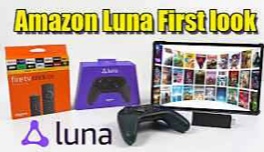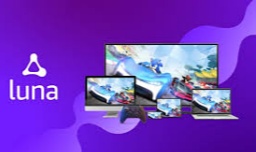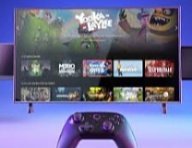Luna cloud gaming is an innovative and exciting platform that allows gamers to stream high-quality video games directly to their devices without the need for expensive hardware. Developed by Amazon, Luna offers users access to a vast library of games that can be played instantly on compatible devices such as PCs, Macs, smartphones, and Amazon's own Fire TV. With its low-latency gameplay and seamless integration with Twitch, Luna is quickly becoming a popular choice for both casual and hardcore gamers alike. By subscribing to Luna, players can enjoy the convenience of playing their favorite games without the hassle of downloading or installing them, making it a convenient and cost-effective gaming solution for all types of gamers.
Amazon Luna: A Deep Dive into the Cloud Gaming Frontier
The realm of video games is in a constant state of transformation. From the blocky characters of the Atari era to the breathtaking realism of today's titles, advancements in technology have continuously redefined the boundaries of the digital playground. One recent innovation with the potential to be a game-changer (pun intended) is cloud gaming. This technology promises a future where high-powered gaming experiences are accessible to anyone with a decent internet connection, regardless of their local hardware limitations.
This content will delve into the specifics of Amazon Luna, a prominent player in the cloud gaming arena. We'll explore its core functionalities, the benefits and drawbacks it presents for gamers, its place within the broader cloud gaming landscape, and its potential impact on the future of gaming.
Unveiling Amazon Luna
Launched in early access in 2020, Amazon Luna is a cloud gaming platform developed by the retail giant Amazon. It operates similarly to other cloud gaming services, leveraging Amazon's powerful cloud computing platform, Amazon Web Services (AWS), to stream video game data directly to a user's device. These servers house top-of-the-line graphics cards (GPUs) and processors (CPUs) capable of running even the most demanding games at high settings. The processed video and audio are then compressed and transmitted over the internet, allowing users to play the game without needing a powerful computer or console themselves.
A breakdown of Luna's core features:
Game Library: Luna offers a curated selection of games, accessible through two primary channels:
Luna+ Channel: This subscription-based channel provides access to a library of games, including recent releases, AAA titles, and indie gems.
Prime Gaming Channel: Available to Amazon Prime members at no additional cost, this channel offers a smaller selection of games, often focusing on older titles or free-to-play experiences.
Device Compatibility: Luna boasts a wide range of compatible devices, allowing users to play on the go or from the comfort of their living room. These include:
PCs and Macs (through web app)
Fire TV devices
Select Samsung and LG smart TVs
Android and iOS tablets
Android and iOS phones (with touch controls or Luna Controller)
Luna Controller: For a more traditional gaming experience, Luna offers a dedicated wireless controller with a familiar layout and low latency connection for responsive gameplay.
Cloud Saves: Games progress and saves are stored on Luna's servers, allowing users to pick up their games from any compatible device.
The Allure of Luna: Benefits for Gamers
For gamers considering venturing into the world of cloud gaming, Luna offers several enticing advantages:
Accessibility: Like other cloud gaming services, Luna eliminates the need for expensive gaming PCs or consoles. Users can play high-end games on a wider range of devices, making it ideal for those who might not have the budget for high-powered hardware.
Performance: By leveraging AWS's robust infrastructure, Luna provides access to powerful hardware that most home users wouldn't realistically own. This translates to smoother gameplay, higher resolutions, and the ability to experience games with advanced graphical features that might not run well on local machines.
Convenience: Cloud gaming eliminates the need for lengthy downloads and installations. Games are readily available to play instantly, and saves are stored on the cloud servers, allowing users to pick up their progress from any device.
Integration with the Amazon Ecosystem: For users already invested in the Amazon ecosystem, Luna offers a seamless integration with Prime membership benefits and potential for future integration with other Amazon services, like Twitch.
The Shadows of Luna: Potential Drawbacks
While Luna holds promise, it's not without its limitations.
Some potential drawbacks to consider:
Internet Reliance: Cloud gaming heavily relies on a stable and high-speed internet connection. Latency (delay) can significantly impact gameplay quality, making Luna a less ideal option for users with unreliable or slow internet.
Data Usage Concerns: Streaming high-resolution games can consume a significant amount of data, potentially exceeding monthly data caps for some users.
Limited Game Selection: Compared to a personal game library, Luna's selection might feel limited. The library is curated, and users might not find all the titles they want to play, especially older or niche games.
Ownership vs. Access: Cloud gaming offers access to games, but not ownership. Users don't have the same level of control over their libraries as they would with physical or downloaded games. If a game is removed from the Luna+ library, users lose access to it.
Luna in the Cloud Gaming Landscape: A Comparative Look
Several cloud gaming platforms are vying for dominance in the market, each with its own strengths and weaknesses. Here's a comparison of Luna with some of its key competitors:
Nvidia GeForce Now:
Strengths: Offers a vast library with integration into popular PC game stores like Steam and Epic Games, allowing users to play their existing libraries on cloud servers.
Weaknesses: Requires users to already own the games they want to play, and may not be as beginner-friendly as Luna's curated approach.
Microsoft xCloud:
Strengths: Tight integration with the Xbox ecosystem, offering access to a library of Xbox titles playable on various devices for Xbox Game Pass subscribers.
Weaknesses: Library primarily focuses on Xbox titles, potentially limiting options for non-Xbox gamers.
Sony PlayStation Now:
Strengths: Offers a library of PlayStation games playable on various devices, including PCs, catering specifically to PlayStation fans.
Weaknesses: Limited library compared to some competitors, and may not be as attractive to users who don't already own a PlayStation console.
Google Stadia:
Strengths: Focuses on integration with YouTube and controller technology, offering a unique user experience.
Weaknesses: Smaller game library compared to some competitors, and has faced challenges with user adoption since its launch.
When compared to these platforms, Luna offers a balance between curated content and accessibility. It doesn't require users to own games beforehand like GeForce Now, and its library caters to a broader audience than platform-specific services like xCloud or PlayStation Now. However, its library size might be smaller than some competitors, and users lose access to games that are removed from the platform.
The Future of Luna: Shaping the Gaming Horizon
The future of Luna and cloud gaming, in general, is intertwined with several key factors:
Infrastructure Development: The widespread adoption of cloud gaming hinges on the continued development of robust and affordable high-speed internet infrastructure, particularly in underserved areas. With reliable and fast internet becoming more ubiquitous, Luna's reach and appeal will increase.
Technology Advancements: Improvements in cloud computing technology, data compression techniques, and latency reduction are crucial for providing a seamless and lag-free gaming experience. As these technologies evolve, Luna can offer smoother gameplay and a more responsive experience.
Business Model Refinement: For Luna to thrive, Amazon needs to develop a sustainable business model that caters to different user needs and preferences. This could involve offering tiered subscription options with varying game libraries, partnerships with game developers to expand offerings, and exploring innovative revenue models that incentivize continued use of the platform.
Industry Collaboration: Collaboration between cloud gaming platforms, game developers, and internet service providers (ISPs) will be essential for creating a thriving cloud gaming ecosystem. Luna can benefit from partnerships that expand its game library, improve internet infrastructure, and promote cloud gaming as a viable alternative to traditional gaming methods.
Potential for Luna
Beyond the core functionalities, Luna has the potential to expand its offerings in several ways:
Social Features: Luna could integrate social features, allowing players to connect with friends, form communities around specific games, and participate in online events. This would enhance the social aspect of gaming within the cloud platform.
Free-to-Play Model: A free-to-play tier could attract new users and allow them to sample Luna's offerings before committing to a subscription. This could be balanced with microtransactions within free-to-play games to generate revenue.
Read Also: Revolutionizing Gaming: The Endless Possibilities of Cloud Platforms
Educational and Casual Gaming: Luna's reach could extend beyond core gamers. Educational games and casual titles could be offered, expanding the platform's appeal to a wider audience, including families and those seeking non-competitive gaming experiences.
Conclusion: Luna's Place in the Gaming Galaxy
Amazon Luna stands as a significant player in the cloud gaming arena. By offering accessibility, performance, and convenience, it has the potential to broaden the gaming audience and redefine how we access and play games.



